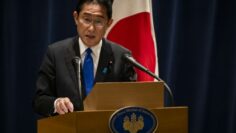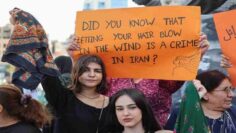Al-Qaida’s second in command secretly killed in Iran
PBC news: Secret intelligence officials have confirmed that Al-Qaida’s second-highest leader was killed in Iran three months ago. He was accused of being one of the masterminds of the deadly 1998 attacks on U.S. embassies in Africa.
Abdullah Ahmed Abdullah, who went by the nom de guerre Abu Muhammad al-Masri, was gunned down on the streets of Tehran by two assassins on a motorcycle on Aug 7, the anniversary of the embassy attacks. He was killed along with his daughter, Miriam, the widow of Osama bin Laden’s son Hamza bin Laden.
The attack was carried out by Israeli operatives at the behest of the United States, according to four of the officials. It is unclear what role if any was played by the United States, which had been tracking the movements of al-Masri and other Qaida operatives in Iran for years.
The killing occurred in such a netherworld of geopolitical intrigue and counterterrorism spycraft that al-Masri’s death had been rumoured but never confirmed until now. For reasons that are still obscure, al-Qaida has not announced the death of one of its top leaders, Iranian officials covered it up, and no country has publicly claimed responsibility for it.
Al-Masri, who was about 58, was one of al-Qaida’s founding leaders and was thought to be first in line to lead the organization after its current leader, Ayman al-Zawahri.
Long featured on the FBI’s Most Wanted Terrorist list, he had been indicted in the United States for crimes related to the bombings of the U.S. embassies in Kenya and Tanzania, which killed 224 people and wounded hundreds. The FBI offered a $10 million reward for information leading to his capture, and as of Friday, his picture was still on the Most Wanted list.
That he had been living in Iran was surprising, given that Iran and al-Qaida are bitter enemies. Iran, a Shiite Muslim theocracy, and al-Qaida, a Sunni Muslim jihadi group, have fought each other on the battlefields of Iraq and other places.
U.S. Secretary of State Madeleine Albright (R) and Ambassador to Kenya Prudence Bushne (L) address Kenyan’s at the bomb-damaged area near the U.S. Embassy in Nairobi August 18, 1998. JN/GB
U.S. Secretary of State Madeleine Albright (R) and Ambassador to Kenya Prudence Bushne (L) address Kenyan’s at the bomb-damaged area near the U.S. Embassy in Nairobi August 18, 1998. JN/GB
American intelligence officials say that al-Masri had been in Iran’s “custody” since 2003, but that he had been living freely in the Pasdaran district of Tehran, an upscale suburb, since at least 2015.
Around 9 on a warm summer night, he was driving his white Renault L90 sedan with his daughter near his home when two gunmen on a motorcycle drew up beside him. Five shots were fired from a pistol fitted with a silencer. Four bullets entered the car through the driver’s side and a fifth hit a nearby car.
As news of the shooting broke, Iran’s official news media identified the victims as Habib Daoud, a Lebanese history professor, and his 27-year-old daughter Maryam. The Lebanese news channel MTV and social media accounts affiliated with Iran’s Revolutionary Guard reported that Daoud was a member of Hezbollah, the Iranian-backed militant organization in Lebanon.



















